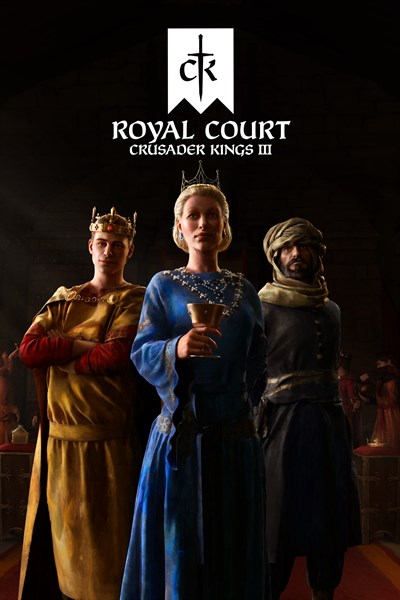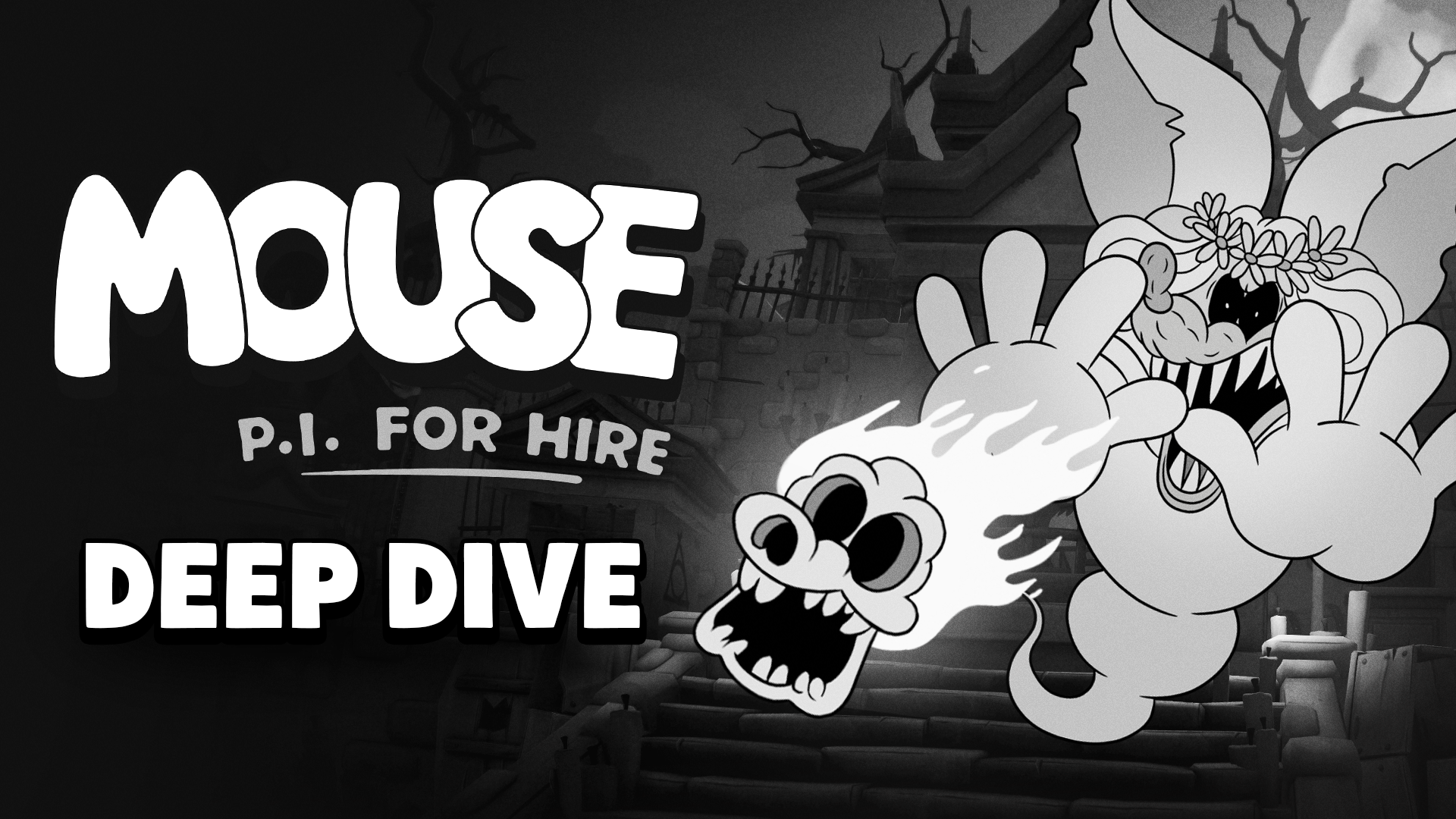
Alongside armored knights or Viking raiders, the king’s court endures as one of the most popular public images of the Middle Ages. We all have pictures of a royal throne at the center of a tapestry decorated hall in our mind, with peasants and petitioners seeking justice from a mighty ruler, or bringing gifts to cultivate favor with the royal power.
So, Royal Court is a natural jumping off point for an expansion to Crusader Kings III, our role-playing strategy game about the Medieval world. This expansion puts players in the seat of majesty, dealing with the problems that a king or emperor would face, while leveraging the grandeur of their court for diplomatic and strategic goals.
First of all, it’s important to note that the royal court in Royal Court is aspirational. Only player characters with the rank of king or emperor get to hold court; the court is intended as a kind of reward and distinctive attribute of these higher titles. Lower ranked characters can, however, pay homage to their liege at court.

Second, your court is kind of a superbuff for your character and realm. Beyond the obvious role-playing elements of making decisions whenever a vassal or courtier asks you for a favor, spending money on your court and decorating it with relics and artifacts will convey bonuses on your character, realm or dynasty.
Decorating your Royal Court with artifacts fits into two of the new features in Crusader Kings III for console – Inventory and Inspirations.
Inventory works a lot like a traditional role-playing game. You have your character model, and you can outfit them with weapons, armor, jewelry and so on to make them more impressive or powerful. So how do you get these special items? You find special people, of course.

Inspirations are when you, as the ruler, hire a craftsperson to make something special for you and your castle. It can be a special tapestry, a new weapon, a shiny crown, and so on. Each of these, as said above, can give bonuses to you and your realm. But, sometimes, master crafters will approach you with their own inspiration and ask that you hire them. The more impressive your Royal Court is (better food, better lodging, a better calibre of people), the higher the quality of crafter you will attract. They can make better weapons and better decorations, which can further increase the reputation of your Royal Court.
In many ways, Royal Court accentuates one of the core strengths of Crusader Kings III. Even if you choose to play as a personal story of a specific family, all of the seemingly minor cosmetic decisions – decoration choices, money invested in your court, selecting which relics to put on display – can have repercussions for your realm. It’s like the old nursery rhyme about the horseshoe nail – small things can have big consequences.
A lot of this comes down to the fact that in Crusader Kings III, gold isn’t the only currency that matters. You will need gold, of course. Soldiers cost money, titles cost money, bribes and ransoms cost money. Gold is certainly important.

But gold is, in Royal Court, an investment in other major currencies, like Prestige, or the odds of success in certain activities. Any gold you spend to increase your grandeur will, as your grandeur increases, give your certain advantages. For example, if you have a court with a fashion focus (maybe in Milan), higher grandeur can mean a hefty Prestige bonus. A court that emphasizes good servants can add power to your spymaster’s schemes. You can even reduce the effects of bad food or unlock special actions for your council with enough grandeur.
So, the Royal Court is not simply a fun place to act out little medieval plays. Carefully managed, the court can be the hub of activity from where you plan a long term theme for your dynasty. It can even serve as a center for short-term activity if you redecorate the throne room with artifacts and relics that enhance a specific skill you need right now.
Royal Court is the first major expansion for Crusader Kings III, and we hope you find it a challenging and diverting way to make your royal family the greatest in history.
Crusader Kings III: Royal Court
Paradox Interactive
There is but one true center for power and prestige: a ruler’s court. Step into your own fully immersive throne room with Crusader Kings: Royal Court, and get ready to impress vassals and courtiers with your splendor and treasure on display. Watch visitors pay respect or family members squabble as you pass judgment in royal audiences, establishing the vital link between your people and your realm.
In Crusader Kings: Royal Court, you can commission great works of art from inspired craftspeople. Impress your rivals with the grandeur of your court, or awe them with your noble house’s heirlooms and relics. An enhanced Culture system lets you guide your people to novel cultural understandings as they merge or splinter off, embrace their heritage, learn languages, or acquire new traditions.
A Royal Court on display
● As King or Emperor, watch as your personal throne room comes to life with the vast range of drama and intrigue of your court. Step into a fully 3D realized space, available in one of four major cultural visual styles, and fill it with regalia and majesty.
● Harsh or benevolent, pass judgment on those seeking arbitration. Hold court and watch as your courtiers scheme and vie for your attention.
● Match yourself against your greatest rival with your court’s grandeur. Or fail to impress them and suffer the sad diplomatic consequences of bad taste.
A true treasure
● Show off your exquisitely crafted relics, or focus on your noble house’s history with your family heirlooms. A whole range of new artifacts can be admired in the series’ return of the inventory system.
● Talented craftspeople, from jewelers to weavers, can be employed on special projects, adding even more unique items to your domain.
● Commission special great works of art or win artifacts in battle. Be careful, as they can just as easily be lost in a botched duel or rival’s scheme.
Culture and the people
● A greatly overhauled Culture system lies ready at your fingertips. Major new Cultural Traditions allow you to significantly change the way you play, from choosing the right benefits due to your realm’s terrain to giving your military new bonuses. Determine your heritage through Cultural Pillars or have your subjects learn new languages.
● Create a truly dynamic melting pot through the new Hybridisation feature, mixing and matching the defining traits of your people into a unique cultural fusion. Become a great Bedouin conqueror who merges with freshly subjugated people or follow the adventurous Norse ruler who came to adopt the local Sri Lankan ways.
● Witness your realm’s culture evolve with the new Divergence feature, with the hands of time subtly transform a single cultural strand into smaller sub-cultures. Shape it as you see fit, or sow the seeds of change, and watch as one monolithic culture grows into a collection of many different people.
Alongside armored knights or Viking raiders, the king’s court endures as one of the most popular public images of the Middle Ages. We all have pictures of a royal throne at the center of a tapestry decorated hall in our mind, with peasants and petitioners seeking justice from a mighty ruler, or bringing gifts to cultivate favor with the royal power.
So, Royal Court is a natural jumping off point for an expansion to Crusader Kings III, our role-playing strategy game about the Medieval world. This expansion puts players in the seat of majesty, dealing with the problems that a king or emperor would face, while leveraging the grandeur of their court for diplomatic and strategic goals.
First of all, it’s important to note that the royal court in Royal Court is aspirational. Only player characters with the rank of king or emperor get to hold court; the court is intended as a kind of reward and distinctive attribute of these higher titles. Lower ranked characters can, however, pay homage to their liege at court.

Second, your court is kind of a superbuff for your character and realm. Beyond the obvious role-playing elements of making decisions whenever a vassal or courtier asks you for a favor, spending money on your court and decorating it with relics and artifacts will convey bonuses on your character, realm or dynasty.
Decorating your Royal Court with artifacts fits into two of the new features in Crusader Kings III for console – Inventory and Inspirations.
Inventory works a lot like a traditional role-playing game. You have your character model, and you can outfit them with weapons, armor, jewelry and so on to make them more impressive or powerful. So how do you get these special items? You find special people, of course.

Inspirations are when you, as the ruler, hire a craftsperson to make something special for you and your castle. It can be a special tapestry, a new weapon, a shiny crown, and so on. Each of these, as said above, can give bonuses to you and your realm. But, sometimes, master crafters will approach you with their own inspiration and ask that you hire them. The more impressive your Royal Court is (better food, better lodging, a better calibre of people), the higher the quality of crafter you will attract. They can make better weapons and better decorations, which can further increase the reputation of your Royal Court.
In many ways, Royal Court accentuates one of the core strengths of Crusader Kings III. Even if you choose to play as a personal story of a specific family, all of the seemingly minor cosmetic decisions – decoration choices, money invested in your court, selecting which relics to put on display – can have repercussions for your realm. It’s like the old nursery rhyme about the horseshoe nail – small things can have big consequences.
A lot of this comes down to the fact that in Crusader Kings III, gold isn’t the only currency that matters. You will need gold, of course. Soldiers cost money, titles cost money, bribes and ransoms cost money. Gold is certainly important.

But gold is, in Royal Court, an investment in other major currencies, like Prestige, or the odds of success in certain activities. Any gold you spend to increase your grandeur will, as your grandeur increases, give your certain advantages. For example, if you have a court with a fashion focus (maybe in Milan), higher grandeur can mean a hefty Prestige bonus. A court that emphasizes good servants can add power to your spymaster’s schemes. You can even reduce the effects of bad food or unlock special actions for your council with enough grandeur.
So, the Royal Court is not simply a fun place to act out little medieval plays. Carefully managed, the court can be the hub of activity from where you plan a long term theme for your dynasty. It can even serve as a center for short-term activity if you redecorate the throne room with artifacts and relics that enhance a specific skill you need right now.
Royal Court is the first major expansion for Crusader Kings III, and we hope you find it a challenging and diverting way to make your royal family the greatest in history.
Crusader Kings III: Royal Court
Paradox Interactive
There is but one true center for power and prestige: a ruler’s court. Step into your own fully immersive throne room with Crusader Kings: Royal Court, and get ready to impress vassals and courtiers with your splendor and treasure on display. Watch visitors pay respect or family members squabble as you pass judgment in royal audiences, establishing the vital link between your people and your realm.
In Crusader Kings: Royal Court, you can commission great works of art from inspired craftspeople. Impress your rivals with the grandeur of your court, or awe them with your noble house’s heirlooms and relics. An enhanced Culture system lets you guide your people to novel cultural understandings as they merge or splinter off, embrace their heritage, learn languages, or acquire new traditions.
A Royal Court on display
● As King or Emperor, watch as your personal throne room comes to life with the vast range of drama and intrigue of your court. Step into a fully 3D realized space, available in one of four major cultural visual styles, and fill it with regalia and majesty.
● Harsh or benevolent, pass judgment on those seeking arbitration. Hold court and watch as your courtiers scheme and vie for your attention.
● Match yourself against your greatest rival with your court’s grandeur. Or fail to impress them and suffer the sad diplomatic consequences of bad taste.
A true treasure
● Show off your exquisitely crafted relics, or focus on your noble house’s history with your family heirlooms. A whole range of new artifacts can be admired in the series’ return of the inventory system.
● Talented craftspeople, from jewelers to weavers, can be employed on special projects, adding even more unique items to your domain.
● Commission special great works of art or win artifacts in battle. Be careful, as they can just as easily be lost in a botched duel or rival’s scheme.
Culture and the people
● A greatly overhauled Culture system lies ready at your fingertips. Major new Cultural Traditions allow you to significantly change the way you play, from choosing the right benefits due to your realm’s terrain to giving your military new bonuses. Determine your heritage through Cultural Pillars or have your subjects learn new languages.
● Create a truly dynamic melting pot through the new Hybridisation feature, mixing and matching the defining traits of your people into a unique cultural fusion. Become a great Bedouin conqueror who merges with freshly subjugated people or follow the adventurous Norse ruler who came to adopt the local Sri Lankan ways.
● Witness your realm’s culture evolve with the new Divergence feature, with the hands of time subtly transform a single cultural strand into smaller sub-cultures. Shape it as you see fit, or sow the seeds of change, and watch as one monolithic culture grows into a collection of many different people.







